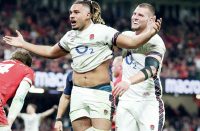
The Royal Society for the Protection of Birds will hardly be surprised to learn, therefore, that the best of the rugby species have been more than a bit thin on the ground in the last few days. The new PRO12 season took wing in Swansea on Friday night without two of the biggest Ospreys in the game.
Dan Biggar and Alun-Wyn Jones missed the home romp against Zebre in much the same way that, through no fault of their own, they missed most of the last PRO12 campaign. Elsewhere on Friday night, more big names were conspicuous by the absence.
Leinster opened their account in Dublin without Jamie Heaslip, Devin Toner and Johnny Sexton. Across the border in Belfast, another high-powered trio – Tommy Bowe, Andrew Trimble and Rory Best – sat out Ulster‘s skirmish with the Dragons.
Interference from the international game knows no bounds. All the aforementioned had been ruled out as a direct consequence of Test matches last June – Wales in New Zealand, Ireland in South Africa.
Rest and recovery demanded that the new domestic season would come round too soon, not just for them but others like Sam Warburton.
Imagine Real Madrid starting La Liga without Ronaldo and Gareth Bale because of their summer exertions on behalf of Portugal and Wales respectively at the Euros. It could never happen because football clubs have complete control over their players.
Many of the star attractions in the PRO12 are employed by their Unions, if not totally, then in part. For that reason the problem tends to be more acute in what used to be the Celtic League than in the Aviva Premiership and the Top 14.
In spite of that, the PRO12 has delivered, by any criteria, a more attractive series of play-off matches than their English or French counterparts over each of the last two seasons. For sheer entertainment and style, the finals in both countries paled in comparison with Connacht‘s triumph over Leinster last May and Glasgow Warriors‘ victory over Munster 12 months earlier.
Yet too many of the stars are missing from too many matches, a deficiency identified by Martin Anayi as being in urgent need of a solution. As managing director, he is to be applauded for the proposed changes to the structure of the PRO12 designed to reduce the number of matches while increasing the star factor.
If they succeed, the PRO12 will be the first to streamline their competition on the principle that less is more, in stark contrast to the international game. For years now, they have charged off at breakneck speed in pursuit of the exact opposite, proving along the way that, in their case, more really is less.
Wales, to give but one example, have played South Africa and Australia so many times in recent years that fixtures once guaranteed to sell the Millennium Stadium to its 74,500 limit now struggle to top 50,000. A sizeable portion of the paying public has had enough and not just in Wales.
In Sydney just over a fortnight ago when the All Blacks wiped the floor with the Wallabies, they did so in front of more than 17,000 empty seats. The crowd for a fixture that once boasted a world record attendance of 108,000 had dwindled to 65,328.
All that is cold comfort to the PRO12 and their four Welsh teams. International demands are exaggerated in World Cup years but the best players in Wales, almost without exception, appeared more often for their country last season than their region.
Some, like Warburton and Alun-Wyn Jones, played twice as many matches for Wales than they did for the Blues and Ospreys respectively. Both missed a large chunk over the final two months of the PRO12 campaign due to injuries towards the end of the Six Nations.
Even those who stayed in one piece, like Taulupe Faletau, wound up playing two internationals for one game in the PRO12. Faletau’s Test appearances last season amounted to 16 which left him enough time to put in no more than eight for the Dragons in the PRO12.
Jones the Osprey started four matches for the Ospreys and 13 for Wales. Scarlets centre Scott Williams played five times more often for Wales last season than for his region during a season plagued by long-term injury.
Pushing the Six Nations back towards the end of the season would solve the problem, as explained by PRO12 chairman Gerald Davies in The Rugby Paper last week.
For all their commendable lobbying, such a radical proposal sounds as though it is doomed to fall on deaf ears.
























